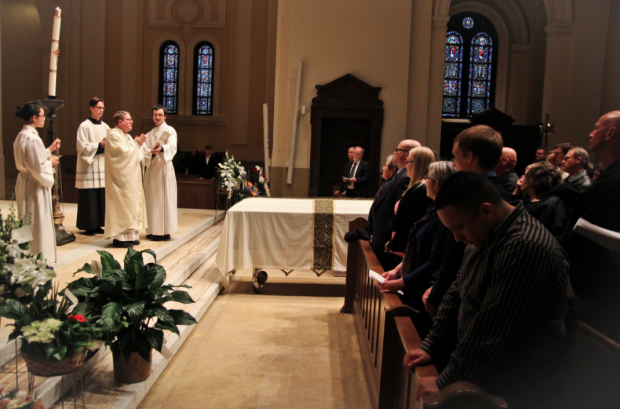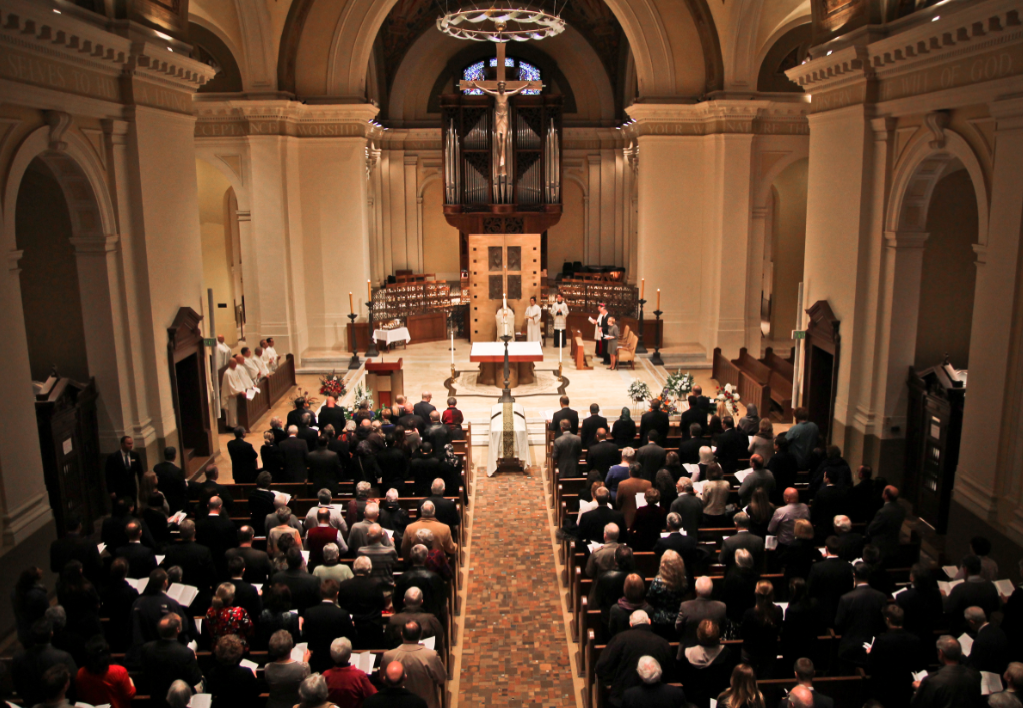
Professor of theology Terence Nichols, noted as a ecumenical bridge builder, was laid to rest Wednesday morning in a Mass of Christian Burial at the Chapel of St. Thomas Aquinas. The longtime theology professor died Saturday of cancer.
Nichols, 73, was diagnosed with cancer in early 2013, but he continued to teach and even lecture the days after he received chemotherapy treatments. He travelled to Turkey during spring break.
He studied at Harvard University in the 1960s, and he completed his bachelor’s degree at the University of Minnesota in 1967. Nichols returned to school at Marquette University in 1982 and received his doctorate in 1988.
Nichols began teaching at St. Thomas in 1988 as an assistant professor. He was promoted to associate professor in 1997 and became a professor in 2003. Nichols also served as chair of the theology department from 2002 until 2006 and as a co-director of the Muslim-Christian Dialogue Center, with theology professor Adil Ozdemir.
In his homily to about 250 family, friends, St. Thomas faculty, staff and students, the Rev. Erich Rutten said Nichols was a restless man. He always wanted to do more to tie together different religions, Rutten said.
“Terry was a talented and heartfelt bridge builder. He was a man of the beatitudes,” Rutten said.
Theology professor Steven McMichael, a friend and colleague of Nichols, said Nichols was extremely passionate about the Muslim-Christian Dialogue Center, which opened in 2007.
“He was pretty much the visionary of this, and he’s the one that kind of stuck through it all, so we have the center,” McMichael said. “A lot of my favorite memories of him were actually in those meetings, talking, dreaming and brainstorming stuff about that … about the center.”
Nichols also wrote three books: “Death and Afterlife: A Theological Introduction,” “The Sacred Cosmos: Christian Faith and the Challenge of Naturalism” and “That All May Be One: Hierarchy and Participation in the Church.”
“It’s not often that one has the opportunity to preach at a man’s funeral who literally wrote the book on death and the afterlife,” Rutten said in his homily.
McMichael said what he appreciated most about Nichols was his energy.
“He was a person who was in his early 70s but had the energy, I think, of a 16-year-old,” McMichael said. “We used to call him the Tornadic One because you entered into his energy field. He kind of swept you up.”
McMichael said one of his favorite memories of Nichols is of Nichols coming into his office to give him a gift and getting sidetracked.
“He had this gift in his hand, but he kept talking about something else, and he was just so wrapped up into it,” McMichael said. “When he left, he goes, ‘Oh, by the way, here’s this. I forgot it.’ It’s almost like he tossed it to me.”
Junior Corey Stephan, who took a class with Nichols last semester, said Nichols cared about every student.
“He really loved each one of his students, and he made that clear every single day,” Stephan said. “When he found out that he had to resume chemotherapy, he insisted on coming into the classroom and lecturing the day after almost every single one of his chemo sessions, delivering a lecture that was at once more lucid and elucidating than most people can deliver while they’re healthy.”
Senior Mary Clare Eisinger, who was Nichols’ advisee and student, said he was her favorite professor.
“He really helped me figure out what I wanted to do with the rest of my life,” Eisinger said. “He was an extremely passionate teacher, and although he was very intellectual, he always found a way to reach every single student.”
McMichael said Nichols’ passing is a loss for the whole university.
“You just saw him all the time. He was just like this presence,” McMichael said. “It’s a big hole.”
Bishop Lee Piche and president Julie Sullivan were also in attendance at the funeral.
Caroline Rode and Grace Pastoor contributed to this article.

